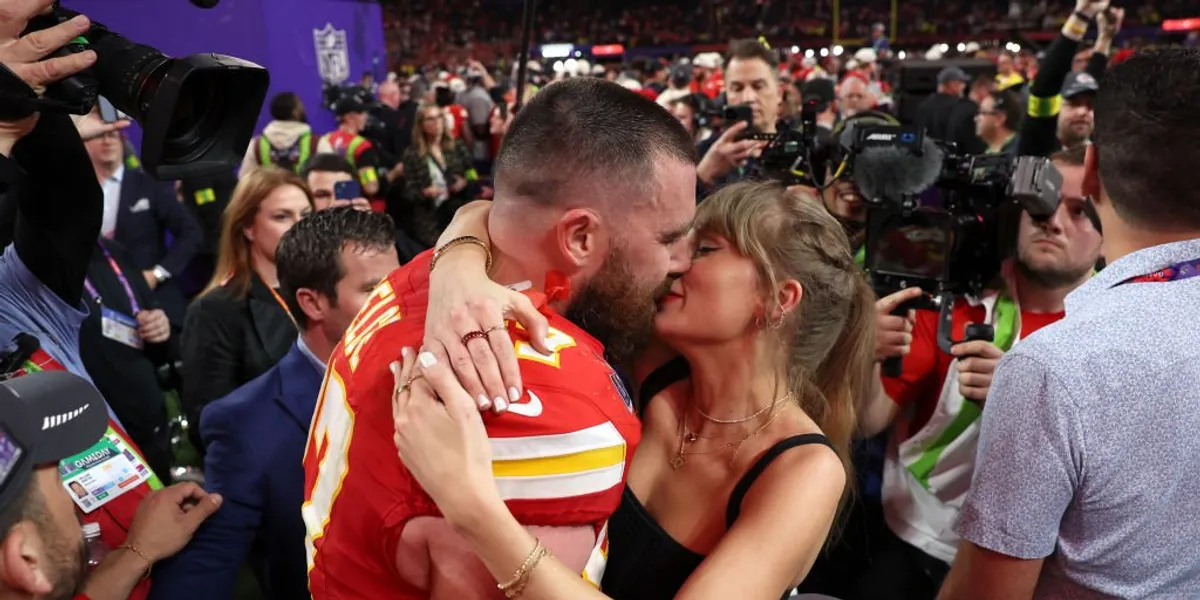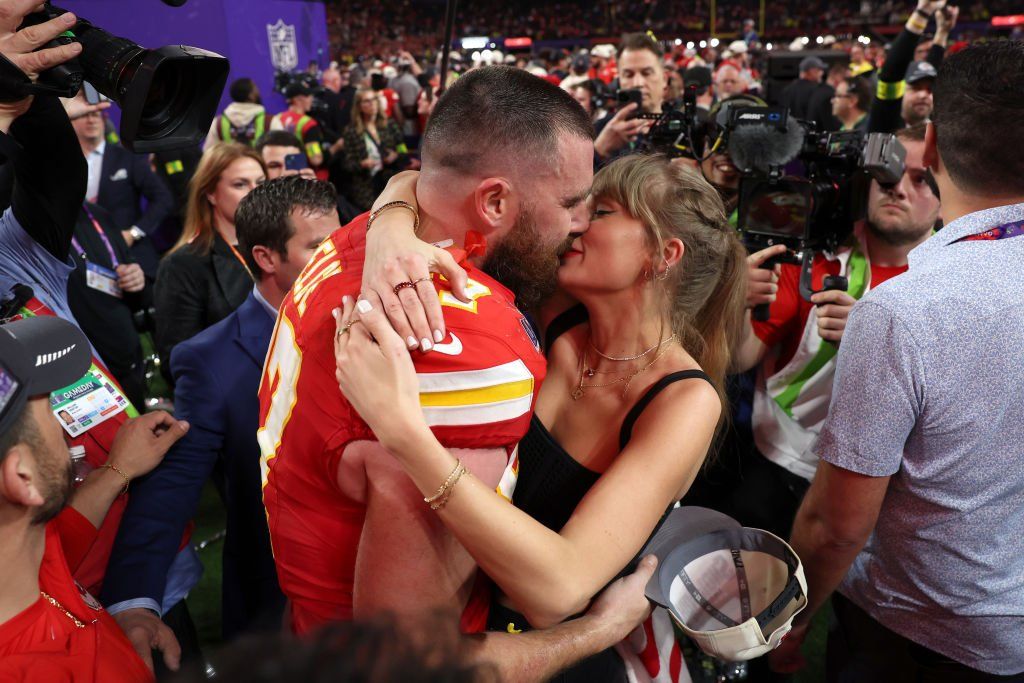
Working in conservative media, I’ve been surprised by the intensity of the emotional response around – of all topics – Taylor Swift.
On one side of the spectrum, of course, is the “Swiftie.” She stays up until midnight for Swift’s latest album release, and attending the Eras Tour may have been the best night of her life.
It’s worth noting that Swift reserves Christian imagery for the songs in which she grapples with the most important personal matters; she’s not out to provoke or shock.
In the middle, you have those who can take Taylor Swift or leave her – they might like some of her songs, but she’s just another musician to them.
The other side of the spectrum, however – we might call them the anti-Swifties – seem to be just as emotional and passionate as the Swifties. However, what binds them together is their shared suspicion that Taylor Swift is a terrible role model, inspired by radical feminism and dismissive of Christian values. Her eleventh album, “The Tortured Poets Department,” seems to offer little to dispute this.
Guilty as sin?
When “Poets” debuted April 19, critics were quick to pounce, calling the work’s 31 tracks (yes, you read that number correctly) uninspired, pretentious, and sonically monotonous.
But the most hot-button accusation making the rounds on X is that Swift’s careless use of religious imagery makes the album blasphemous. The most rebuked song, “Guilty as Sin,” features Swift confessing lust for a romantic partner with phrases evoking Christ’s crucifixion and resurrection: “What if I roll the stone away? They’re gonna crucify me anyway.”
In “The Smallest Man Who Ever Lived,” Swift again likens herself to Jesus, singing, “I would’ve died for your sins, instead, I just died inside.”
This isn’t the first time Swift has dabbled in Christian imagery. 2019’s “False God” features Swift using similar language to describe the idolization of a relationship: “We might just get away with it, the altar is my hips. Even if it’s a false god, we’d still worship this love.” It was during this same time Swift also released her undeniably catchy single “You Need to Calm Down,” a dig at “homophobia.”
While the lyrics don’t directly reference Christians, the music video’s trailer-park setting clearly means to evoke white “trailer trash” and the religious right, the same kind of people Swift began complaining (and sometimes crying) about during her embarrassing political phase that coincided with the release of the Swift documentary “Miss Americana.”
Those willing to overlook these outbursts at the time are revisiting them in light of the lyrics on “Poets.”
Alwyn on my mind
I agree with my fellow Christians and share their disappointment: Parts of this album are indeed blasphemous, and I understand why they offend. At the same time, much of the commentary ignores aspects of the album that are worth discussion and some degree of appreciation, particularly from a conservative perspective.
What I find most profound about “The Tortured Poets Department” is the honesty with which Swift, 34, reveals what she now desires in life: marriage, babies, and meaning. Pop’s most famous serial dater has always sung about love, but on “loml” (an acronym for “love of my life”), she takes it a step further, lamenting the end of her six-year relationship with actor Joe Alwyn last spring.
Swift seems to blame that breakup on Alwyn’s unwillingness to marry and start a family, as evidenced by lines such as, “You talked me under the table [clean version], talking rings and talking cradles.” The title track also hints at a marriage that never was: “At dinner you take my ring off my middle finger and put it on the one people put wedding rings on, and that’s the closest I’ve come to my heart exploding.”
The ballad “So Long, London” is one of the album’s most poignant expressions of this yearning. Opening with haunting a cappella harmonies that evoke wedding bells, the lyrics find Swift bitterly washing her hands of a man who wasted her time: “I stopped CPR, after all it’s no use. The spirit was gone, we would never come to, and I’m pissed off you let me give you all that youth for free.”
In another lyric she makes clear what she expected in exchange, lamenting that she “died on the [wedding] altar waiting for the proof” of his love. The proof? You guessed it: marriage.
By the time we hear “The Prophecy,” this regret has turned into despair. Is it finally too late to find someone who will choose her forever? “I’m so afraid I sealed my fate, no sign of soulmates.”
While tracks like “Peter” (as in Peter Pan) allow Swift the satisfaction of kicking immature, commitment-averse men to the curb, she doesn’t let herself off the hook for her history of heartbreak.
Taylor made
On “I Can Fix Him (No Really I Can),” Swift incisively portrays the deluded optimism of a woman who’s convinced herself she can turn her “project boyfriend” into husband material. The lyrics of “I Can Do It With a Broken Heart” subtly undermine the album’s only pure upbeat dance anthem, with Swift sarcastically bragging about how easy it is to conceal her misery beneath girl-power bravado.
Of course, not all 31 songs are laments over love lost. “Clara Bow” is a touching and personal rebuke of the way the music industry pits younger female artists against older ones, while “Robin” is a sweet ode to the young son of The National’s Aaron Dessner, who produced the album. The latter track shows Swift doing something she’s proven she’s good at: writing what she doesn’t know. Here she effortlessly channels the emotions of a mother cherishing the whimsy of her little boy’s imagination (“Long may you roar at your dinosaurs, you’re a just ruler”) with the bittersweet acceptance that such innocence is necessarily fleeting.
Swift has never been one to downplay the struggles of life in the spotlight, and two songs on “Poets” give her the chance to chastise her audience for asking too much of her. The moody ballad “How Did It End?” calls out fans for the “empathetic hunger” with which they consume and gossip about Swift’s breakups.
“But Daddy I Love Him” strikes back at Swifties who launched a campaign demanding that Swift do public penance for dating musician Matty Healy once some comments he made on a podcast revealed him as “bigoted.” Swift has built a reputation around kindness and generosity to her fans, but these songs are rare glimpses that she may be exhausted by them as well.
On a break
When it comes to the music on “Poets,” it’s more evident than ever that Swift could use a break from longtime collaborator and producer Jack Antonoff, who seems to be starting to repeat himself, at least with Swift. The songs produced with Dessner, while beautiful, tend to rely on the same raw, stripped-down sound the duo pioneered on 2020’s “folklore.” It’s always easy to tell who produced which song on “Poets,” and that’s not really a good thing.
Swift has an undeniable gift for weaving powerful, intimate emotions into her songwriting, a gift often undercut by jarring lapses in taste. A single line can convey a feeling with breathtaking precision, only to be followed by lyrics as dull and awkward as, “You smoked then ate seven bars of chocolate. We declared Charlie Puth should be a bigger artist.” While I don’t agree with some critics that these juxtapositions are intentional or inspired, I can forgive the occasional goofy line after hearing Swift in top form on tracks “How Did It End?” “The Bolter,” and “The Smallest Man Who Ever Lived.”
Most forgettable are the two songs very clearly written about Swift’s current boyfriend, NFL tight end Travis Kelce (“The Alchemy” and “So High School”). While these songs are innocent, here Swift mixes silly football references (“So when I touch down, call the amateurs and cut ’em from the team”) with the idea of finding a love that only happens “once every few lifetimes.” The results are tired and repetitive.
It’s worth noting that Swift reserves Christian imagery for the songs in which she grapples with the most important personal matters; she’s not out to provoke or shock. Swift may no longer believe, but she was raised a Christian, and it’s only natural that she would reach for Christian language in describing her deepest longings. What she admits to wanting – meaning, commitment, children – is what we were all created to want.
Is Swift close to recognizing what it is she really seeks in her restless pursuit of love? Perhaps, one day soon, she’ll encounter He who’s been waiting for her all along. However you may feel about Swift’s music, that’s something we can all pray for.
Source: TheBlaze










